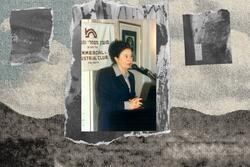Eden Golan at Eurovision: Representing Israeli Resilience through Song
Prior to the 2024 Eurovision in Switzerland, Eden Golan was set to represent Israel with her original song, “October Rain.” The song notes the tragedies and terror faced by hundreds on October 7, 2023 and honors Jewish resilience.
Golan faced immense pushback in the months leading up to her performance. While the song does not directly address the attacks, its strong allusion evoked a lot of controversy. The final line of the song says (translated from Hebrew): “They were all good kids. Every one of them.” Ultimately, the European Broadcasting Union (EBU) disqualified Golan’s song for its political message in support of Israel and requested a rewrite.
After several rewrites, the EBU accepted a final revised version titled “Hurricane” for Golan to perform at the 2024 Eurovision.
Golan’s disqualification evoked many emotions for me. I struggled to grapple with how a song describing the terror and tragedy from October 7 could be seen as controversial. I did not view the song as any political statement, but rather a personal testament to the nation's collective despair.
The Eurovision allows different countries to display their pride and culture while also honoring individual talent. Their mission statement specifies: “The Eurovision Song Contest’s values are of universality and inclusivity and our proud tradition of celebrating diversity through music…” The original lyrics to “October Rain” encapsulate the emotional state of many Israelis amidst the war. Forcing Golan to change her lyrics directly counters their goal for inclusivity as it does not acknowledge the Israeli reality.
Golan placed fourth in the Eurovision performing the refined song. Yet, despite her impressive performance, she faced harsh criticism including being booed and even death threats. As a powerful response to the hate Golan encountered, she performed the original song,“October Rain” in Hostage Square in Tel Aviv the week following the competition.
The original lyrics say, “and I promise you that never again,” a phrase often associated with the Holocaust. I say this to my grandmother, a Holocaust survivor, to reaffirm our Jewish strength and my commitment to making sure the world does not stay silent. Yet over 500 days into the war, humanity’s silence reminds us of an unfortunate past. Once again, Jews are ignored and neglected. Golan’s lyrics indirectly call out the overwhelming silence of the world as yet another group seeks to destroy the Jewish people and the Jewish state. According to the Anti-Defamation League, antisemitic attacks have increased 360% in the US following October 7, 2023. Rather than supporting Jews following the horrors of October 7, hate has only increased.
However, these two words “never forget” were not permitted in Golan’s Eurovision performance. I feel deeply saddened that a phrase associated with never forgetting the terrors of the Holocaust was too politically charged for her performance.
In both versions of her song, Golan depicts the Israeli experience as both deeply challenging and unifying. While the EBU forced her to amend her lyrics, Golan did not lose her authenticity and her strong ability to reflect the collective Israeli (and Jewish) experience.
This piece was written as part of JWA’s Rising Voices Fellowship.







